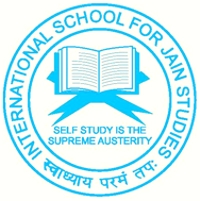
ISSJS
INTERNATIONAL SCHOOL FOR JAIN STUDIES | ||
| In association with | |
Jaipur | Rajasthan University | Feb 15th 2010 |
Nagpur | Nagpur University | Feb 18th 2010 |
Mumbai | Mumbai University | Feb 21st 2010 |
Mumbai | Somaiya Vidhya Vihar | Feb 22nd 2010 |
Bangalore | Jain University | Feb 24th 2010 |
Chennai | University of Madras | Feb 26th 2010 |
Indore | KundKundJnanapith | Feb 28th 2010 |
Varanasi | ParshwanathVidyapeeth | Mar 5th 2010 |
Muradabad | Teerthankar Mahavir University | Mar 7th 2010 |
Delhi | Lal Bahadur Shastri Sanskrit VP* | Mar 8th 2010 |
Canada | Universityof Ottawa | Aug 2010 |
details:
The general perception in the academic community is that Jainism is the religion of asceticism i.e. renunciation or nivrtti. It preaches ascetic life to attain liberation. This view is perhaps based on the code of conduct for the ascetics in Jain canons and scriptures. Also the story literature (purānas) of Jains has the distinctive feature of evolving the entire story around one person (hero) and traces his /her life in many births till he /she because ascetic and archiving liberation thereafter. Only the seventh limb i.e. Upāsakadaśānga gives life sketches often lay persons during Mahāvira's time. All these may develop a feeling of renunciation rather than engagement (pravrtti) in the world as the primary objective of a Jain.
However from the 2nd century AD, the Jain holy literature started detailing the conduct for laity (known as Śrāvakācāras) written by Jain preceptors. They emphasized not only the ultimate liberation of the individual laity but also the rules of social conduct for them as they remain engaged in their worldly activities. Perhaps Samantbhadra (2nd century AD) of Rattan Karanda Śravakācāra and is the pioneering preceptor. Similarly Soma Dev (8th Century AD) in his book Upāsakādhyana /Yasasticampu describes laukika and parlaukika dharmas for laity. These form the basis for Jains to form local communities and become a part of local, regional, national and international societies and contribute to them in multiple ways. are the pioneering efforts in this direction. Later on more than sixty such texts and a large corpus on social activities, religious rituals, conduct for laity has been written by Jain preceptors. Today Jains constitute a very small, less than 0.5 percent of the total population, community of highly educated, prosperous, non violent, peace loving and socially involved community that is contributing to the well being of the neighbourhood, country and world at large.
International School for Jain Studies(ISJS), in association with leading universities of India and Canada, took up the task of organizing a series of national and international seminars on the theme 'Social consciousness and Jainism'. The objective of these seminars is to build a corpus of knowledge concerning Jain doctrine and its application to social engagements, contributions of Jains to society in arts, education, culture, health, and fight the social ills like poverty, violence, terrorism, diseases etc.
The response to these seminars has been overwhelming. Prestigious universities like Rajasthan, Mumbai, Madras, Nagpur etc. and institutes like Somaiya Vidhya Vihar, Parshwanath Vidhyapeeth, Shri Bharatvarshiya Digambar Jain Shrut Samvardhini Mahasabha in India agreed to associate with ISJS in this venture. Internationally, Univ of Ottawa had in principle agreed to organize a seminar on this subject in August 2010. Similarly academicians and social organizations came out and sent over 100 papers for presentation at the ten seminars in different universities and institutes all over India.
Forgiveness is the virtue of the brave
Since its inception in 2005, International School for Jain Studies (ISJS) has organized five 'Two months long residential summer schools ISSJSS' for foreign scholars and faculty members of North American, European and Asian universities. In 2009, ISJS also organized the first overseas school at Mahidol University Bangkok Thailand. Some of the achievements of ISJS:
Over 125 scholars from 20 universities often countries have already benefitted by attending ISSJSs conducted annually by ISJS.
- Five ISSJS alumni are teaching Jain philosophy at their universities. Several hundred students in these universities are exposed to Jainism regularly.
- Five ISSJS alumni have enrolled for PhD with major emphasis on Jainsim.
- American Association of Religion 'AAR' teachers have a permanent panel and session for Jain studies. An ISSJS alumnus is its chairperson.
- Several books and papers on Jainism are being published by US professors and ISJS associates.
- ISJS is now recognized by a number of leading universities of North America and Thailand.
- Large groups of scholars and students from U.S.A. visit ISJS India for orientationprogram regularly.
In 2010, ISJS is venturing in India to network with leading Indian universities. These seminars are a startinthis direction.
I express ISJS's and my own sincere thanks to all the institutions, scholars, donors for their support to this project.
Jai Jinendra
Shugan Chand Jain PhD Director
An act performed never goes without results.
